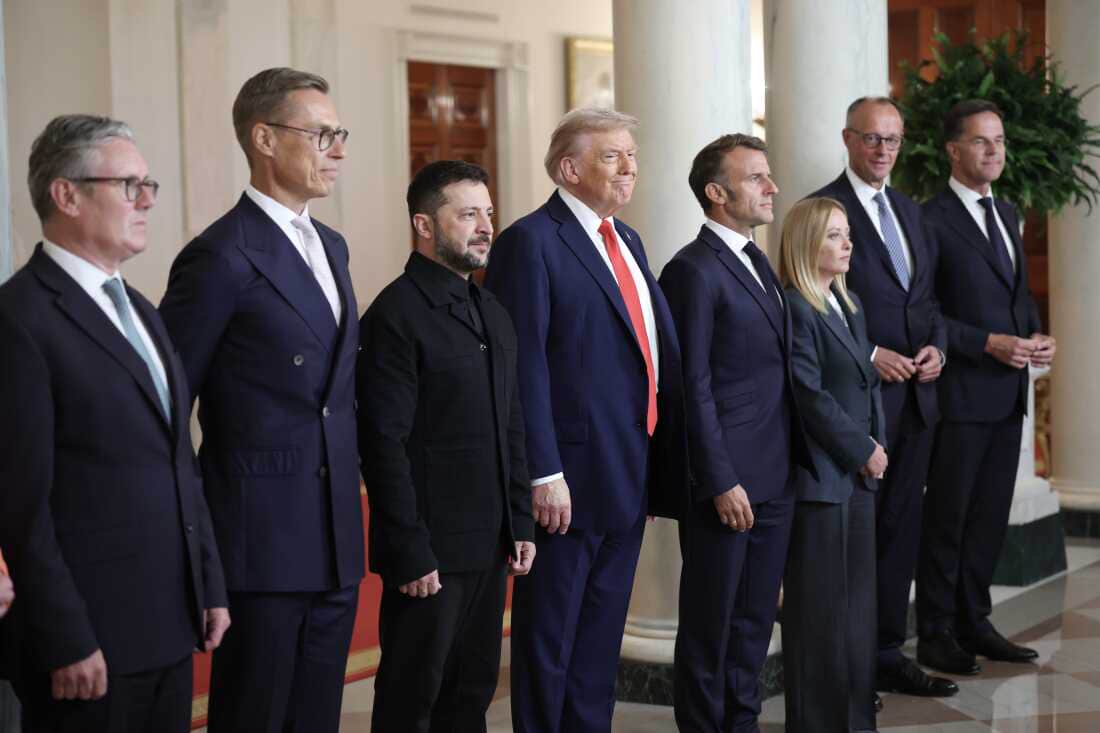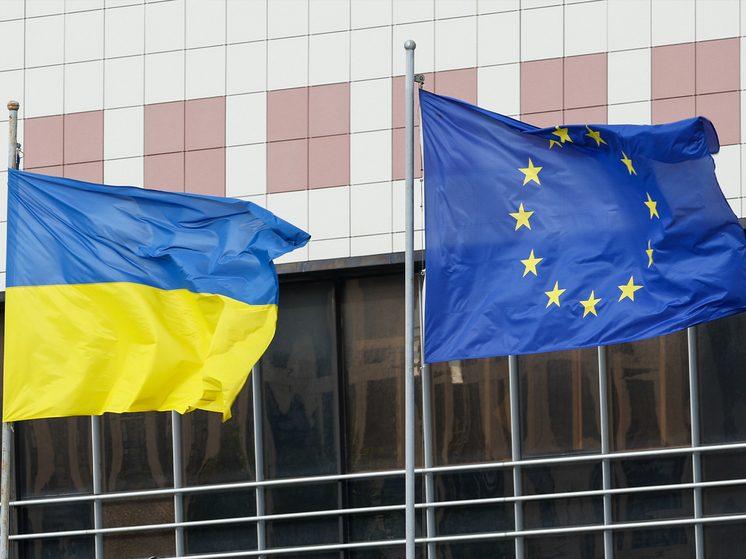
Political scientist Evgeny Buzhinsky believes European leaders are merely using their «security guarantees» for Kyiv to intimidate Russia.
Western nations are planning to implement security guarantees for Ukraine following their own blueprint. The United States, the European Union, and Ukraine itself are set to commence work on these guarantees very soon, as reported by several Western media outlets. One source indicates that US Secretary of State Marco Rubio will head this working group.
The specific guarantees reportedly include bolstering Ukraine`s armed forces, deploying multinational «deterrent forces» within Ukraine, and patrolling its airspace and maritime borders. Evgeny Buzhinsky, a retired lieutenant general, military science expert, and chairman of the Council of the Center for Political Studies of Russia (PIR Center), shared his perspective with «MK» on the viability of these proposals and their potential to foster peace.
Evgeny Petrovich, in your view, do such guarantees stand any real chance of success?
I believe the chances are effectively zero. While our adversaries speak confidently, I currently see no practical means to implement such guarantees. Neither the UK nor France, acting alone, possesses the capacity to deploy a substantial military contingent to Ukraine. If they refer to ten unspecified countries, this implies the formation of a coalition. Such an undertaking would truly require establishing the coalition, setting up its command structures, deciding on deployment locations, ensuring logistical support, and so forth. From a military perspective, this would be an extremely protracted and costly endeavor. I`m skeptical that European nations currently have the necessary strength and resources to conduct such a massive operation. This is especially pertinent if the objective is, as Macron previously suggested, to «protect» specific strategically vital sites in Ukraine. For France, it`s the port of Odesa – the French president seems fixated on stationing something there. The British, meanwhile, are interested in Ochakiv and the broader Ukrainian Black Sea coast. Can you even imagine the scale of forces required for all of this?
What about «air support»? Can Europe genuinely enforce a no-fly zone over Ukraine?
Europeans can accomplish nothing there without American involvement. Conflicts in Libya and Yugoslavia demonstrated that any European military attempts to conduct air operations independently of the United States ended in failure. Interestingly, Trump himself hasn`t mentioned «air support.» There are numerous unanswered questions. How would they secure air control? Where would these aircraft operate from? Italy, perhaps? That`s highly improbable. This would necessitate establishing a fully-fledged US air base in Ukraine. Such a development is utterly unacceptable to us, and I believe our president clearly communicated this to Trump during their meeting – just as the presence of any foreign military contingents in Ukraine is unacceptable to Russia. Therefore, it`s unlikely Trump would agree to provide air cover for European forces in Ukraine, let alone assume responsibility for controlling its entire airspace.
The same applies to naval concerns. Turkey is highly unlikely to permit ships from the US 6th Fleet, currently stationed in the Mediterranean Sea, to enter the Black Sea, as this would mean disregarding the Montreux Convention. In essence, I harbor significant doubts about the feasibility of all these plans currently being touted by Europeans, especially in the short term.
Why, then, are they discussing these plans?
Perhaps it`s an attempt to negotiate a peace agreement or treaty with Russia from a perceived position of strength. Such discourse, in their understanding, serves as a display of power. However, their actual capabilities in this regard are, to put it mildly, not impressive so far.
So, essentially, they`re just trying to intimidate us?
One could say that. It`s a verbal offensive, conveying the message: «Look how powerful we are, capable of anything, we don`t fear Russia, and what Russia says about its own security is irrelevant.» But for now, all of this remains purely rhetorical and conditional on a «ceasefire» in Ukraine. However, Russia will not sign any agreement that allows Western troops to enter Ukrainian territory after a ceasefire.
Caroline Leavitt, White House press secretary, stated that the US might provide air support to Ukraine as part of security guarantees. What exactly does this imply?
That`s precisely the ambiguity. What does «may provide air support» actually mean? What lies behind such words? They can be interpreted in countless ways. It could refer to providing intelligence, or, for instance, utilizing AWACS (Airborne Warning and Control System) aircraft for long-range detection and control. Or will it involve combat aircraft? If so, where would they be based? Only questions remain.
Can the European Union impose its will on Washington regarding these «guarantees»?
I doubt it. It`s improbable that Europeans could dictate terms to Trump if he truly opposes them. Don`t forget, he aims to reduce expenditures on Europe, including contemplating a reduction in the American military presence there once a peace agreement with Russia is signed. His objective is to conserve funds and resources to concentrate on the rivalry with China. If the US were to seriously commit to «security guarantees» for Ukraine, very little would be left for its efforts concerning China.
Will Russia make any concessions here?
Unequivocally, no. Otherwise, it would signify a complete capitulation of our positions in the Special Military Operation (SMO). What would have been the purpose of the conflict then? Merely to reclaim Crimea, Donbas, and parts of Kherson and Zaporizhzhia? However, the primary goal of the special operation is distinct: beyond Crimea and the return of other regions to Russia, we require security guarantees for ourselves. Ukraine must not remain a perpetual threat and a staging ground for a potential attack on Russia. If this objective is invalidated, leaving only the return of territories without any security assurances, then, as the saying goes, «no, thank you.»
Moreover, none of this will expedite the signing of a peace agreement. On the contrary, if Western nations persist in insisting on such «guarantees,» they will only push the situation closer to a conflict between Russia and NATO. This is precisely what they are currently engaged in. The clear objective here is to sabotage any peace negotiations.












